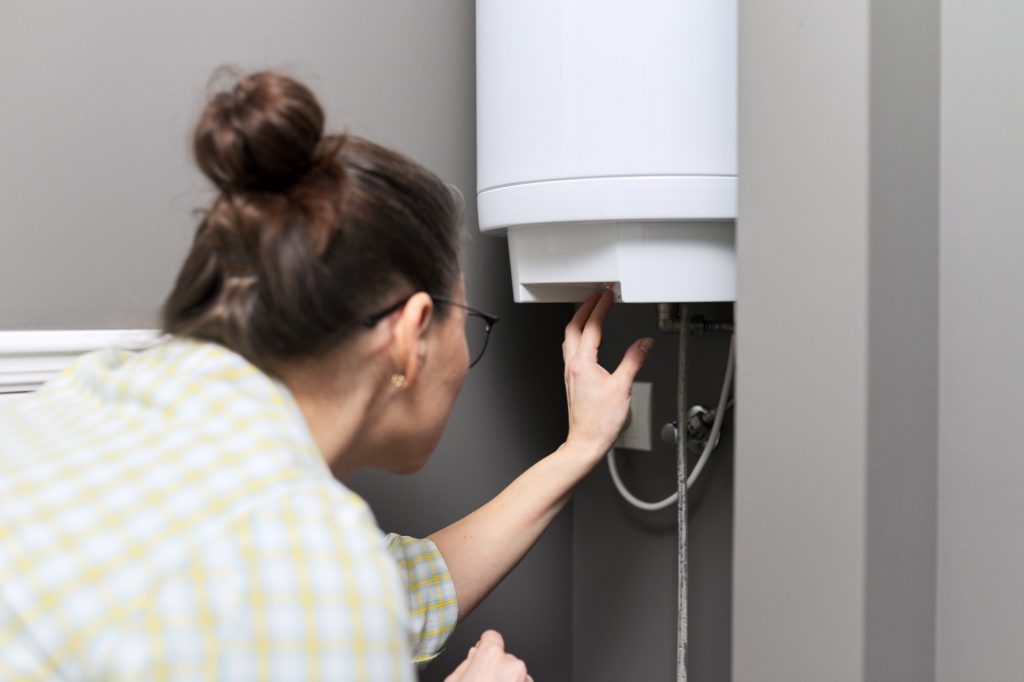Introduction
Water heaters are essential in many homes, providing hot water for bathing, washing dishes, and laundry. However, they can also pose serious hazards if not adequately maintained and used. In this article, we will explore the different types of water heaters, the common risks associated with them, and the preventative measures you can take to avoid these hazards.

Types of Water Heaters
Several types of water heaters exist, including electric, gas, and tankless. Each type has its unique benefits and drawbacks, and it is essential to understand these differences to make an informed decision when purchasing a water heater.
Electric water heaters are powered by electricity and are typically the most affordable option. However, they are also less efficient than gas water heaters and can be more expensive.
On the other hand, gas water heaters use natural gas or propane to heat the water. These water heaters are more efficient than electric water heaters and can be less expensive, but they also require proper ventilation to prevent carbon monoxide poisoning.
Tankless water heaters, also known as on-demand water heaters, heat water as needed rather than storing it in a tank. This type of water heater is more energy-efficient and takes up less space, but it can also be more expensive to purchase and install.
Common Hazards Associated with Water Heaters
Water heaters can pose several hazards, including scalding, carbon monoxide poisoning, flooding and leaks, electrical shock, and fire. It is essential to be aware of these hazards and take steps to prevent them.
Scalding can occur if the water temperature is too high, causing burns or skin irritation. Carbon monoxide poisoning can occur if a gas water heater is not correctly ventilated, leading to headaches, dizziness, and nausea. Flooding and leaks can occur if a water heater is not maintained correctly, leading to water damage and potential mold growth. Electrical shock can occur if the water heater is not properly grounded, and a fire can occur if flammable materials are stored too close to the water heater or if the wiring has a problem.
Preventative Measures
Several preventative measures can be taken to avoid these hazards, including regular maintenance, proper installation and placement, adjusting the water temperature setting, using safety devices, and considering the age of the water heater.
Regular maintenance, such as flushing the tank and checking the heating elements, can help prevent issues with the water heater. Proper installation and placement, such as keeping the water heater away from flammable materials and adequately grounded, can also prevent hazards. Adjusting the water temperature setting to a safe level can prevent scalding. Safety devices such as a temperature and pressure relief valve can prevent flooding and leaks. Additionally, considering the age of the water heater and replacing it if it is over 10 years old can also prevent potential hazards.
Signs of a Dangerous Water Heater
Several signs indicate that a water heater may be dangerous, including rust and corrosion, strange noises, lack of hot water, leaks, and strange odors. If you notice any of these signs, it is essential to address the issue promptly to prevent potential hazards.
What to Do in an Emergency
In the event of an emergency with your water heater, it is essential to shut off the power supply, evacuate the area, and call for professional help. Additionally, being prepared and taking preventative measures can help prevent emergencies from occurring in the first place.
Conclusion
In conclusion, water heaters can be a source of severe hazards if they are not adequately maintained and used. Understanding the different types of water heaters, their common risks, and the preventative measures that can be taken can help keep you and your family safe. Regular maintenance, proper installation and placement, adjusting the water temperature setting, using safety devices, and considering the age of the water heater are all essential steps in avoiding hazards. By being informed and taking the necessary precautions, you can ensure that your water heater is a safe and reliable source of hot water.
FAQs
- What are the different types of water heaters?
- The different types of water heaters include electric, gas, and tankless water heaters.
- How often should I have my water heater serviced?
- It is recommended to have your water heater serviced at least once a year to ensure it functions correctly and to prevent potential hazards.
- What should I do if I smell gas near my water heater?
- If you smell gas near your water heater, immediately evacuate and call for professional help.
- Is it safe to install a water heater in my basement?
- Yes, installing a water heater in your basement is safe if it is properly installed and ventilated.
- How do I know if my water heater is dangerous?
- Signs that a water heater may be dangerous include rust and corrosion, strange noises, lack of hot water, leaks, and strange odors. If you notice any of these signs, it is essential to address the issue promptly.

